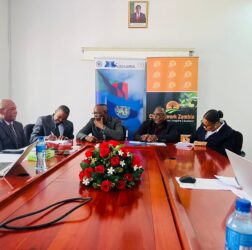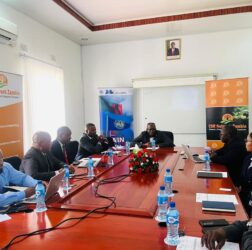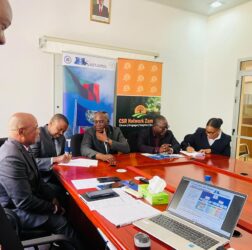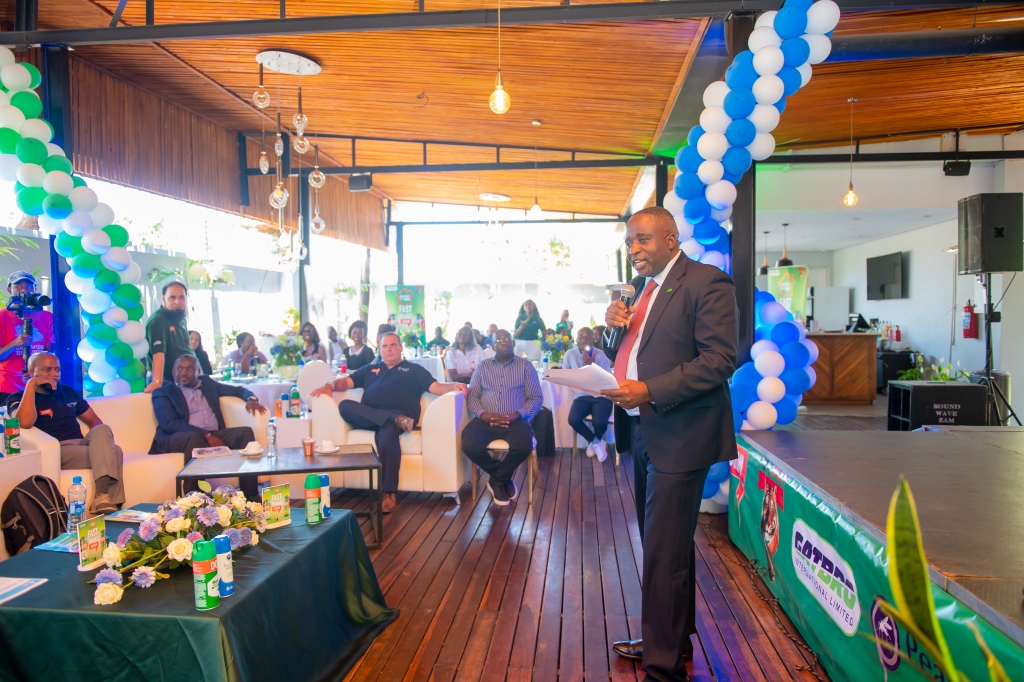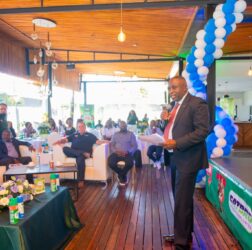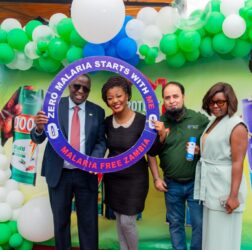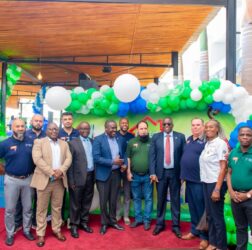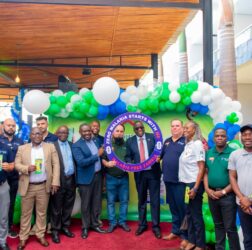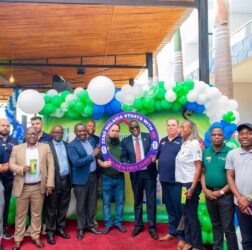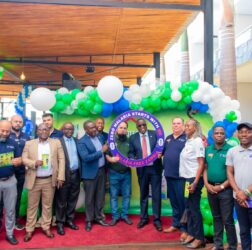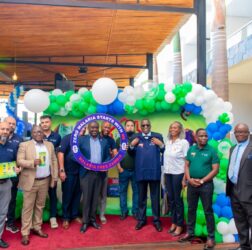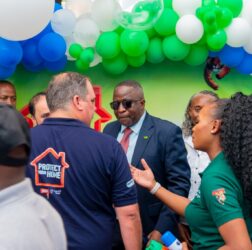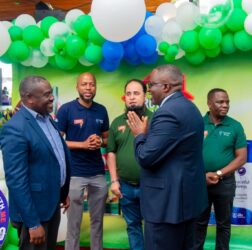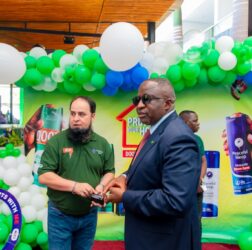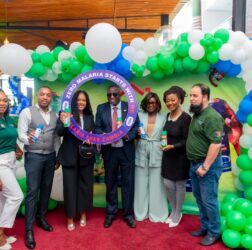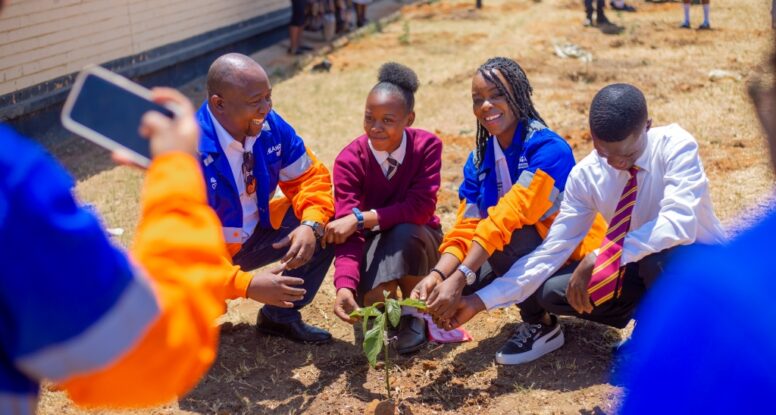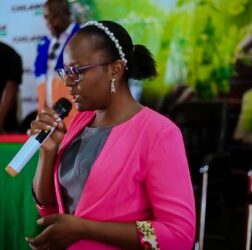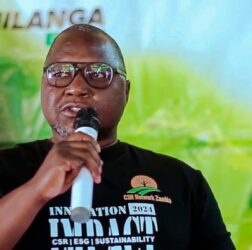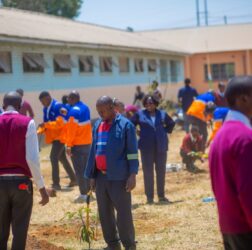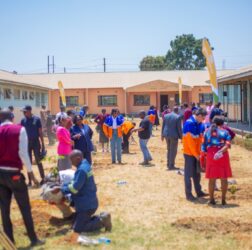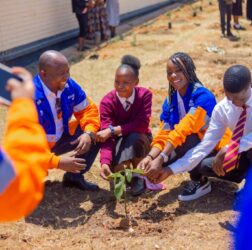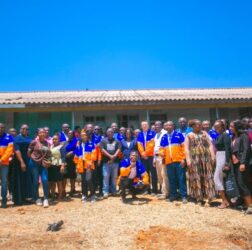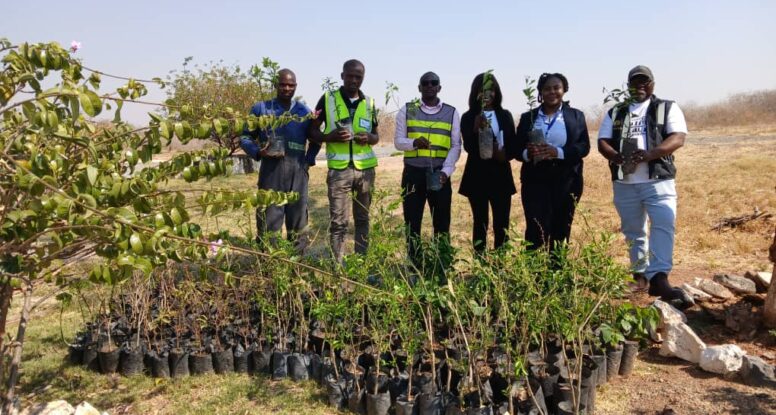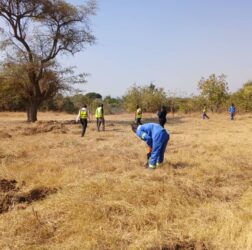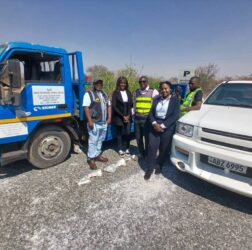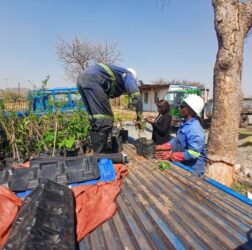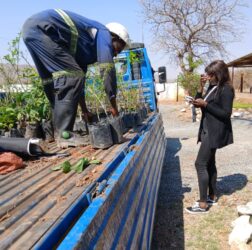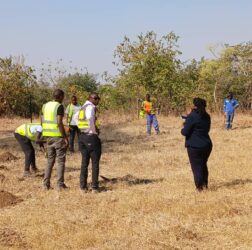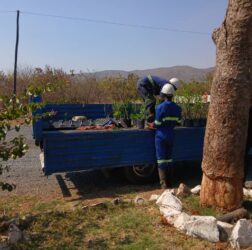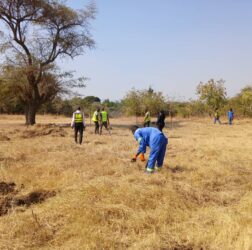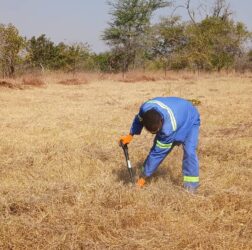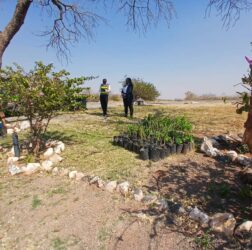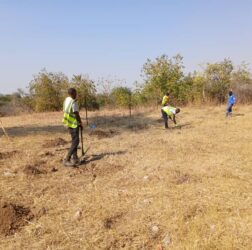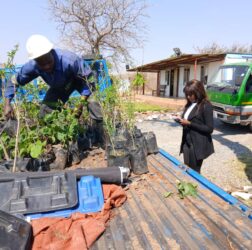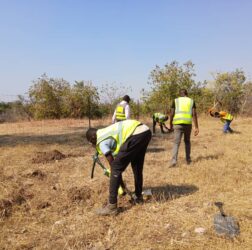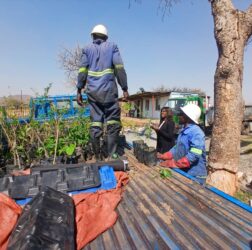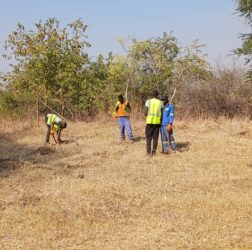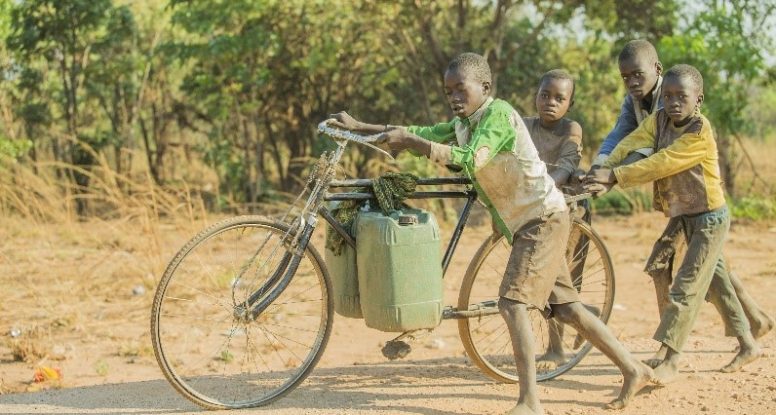As Zambia commemorates its 60th Independence Anniversary, Chilanga Cement, in collaboration with CSR Network Zambia, embarked on an impactful initiative to leave a lasting legacy through the Zambia@60 Tree Planting Project. This project, which saw the planting of 600 grafted fruit trees across schools in Lusaka and Ndola, goes beyond mere celebration, as it aims to promote sustainability, educate young minds and honor Zambia’s rich history.
The project saw two significant launch events – Ndola (October 11, 2024) where 300 trees were planted at five beneficiary schools—Masala Secondary School, Itawa Combined School, Ndeke Caritas, Ndeke Combined School, and Dzikomo School. These schools have committed to nurturing the orchards, with students adopting a plant and taking on direct responsibility for the trees. In Lusaka (October 17, 2024) another 300 trees were planted at Mwembeshi Secondary School, creating a similar opportunity for students to learn about environmental stewardship and sustainability through hands-on care of the orchard.
During the Ndola event, Mr. Xu Maosheng, speaking on behalf of Chilanga Cement, emphasized that the trees represent “seeds of knowledge, hope and environmental responsibility” that students will carry forward as part of their commitment to a greener future. His message resonated with the students, encouraging them to care for the trees and play an active role in building a sustainable Zambia.
In Lusaka, Mr. Chai Jianping, CEO of Chilanga Cement, reiterated the company’s long-term commitment to education and environmental stewardship, emphasizing that these trees will stand as reminders of Zambia’s 60th Independence Anniversary for years to come. He praised the partnership between CSR Network Zambia and the schools involved in this initiative, highlighting that the efforts to empower students and build sustainability are key to Zambia’s future success.
The event also had strong support from local leadership. Mr. Sipho Hlazo, the Area Member of Parliament for Chilanga, delivered remarks in Lusaka, emphasizing the critical importance of tree planting for the environment. He shared that, through his involvement, over 2000 trees have been planted at various schools and churches within the district, demonstrating his personal commitment to the cause. His involvement underlined the importance of such projects, not just for environmental sustainability, but for the future wellbeing of the community.
Ms. Chipo, the Mwembeshi Ward Councillor, was also in attendance, supporting the initiative. Her presence reinforced the significance of grassroots involvement in ensuring the success of environmental projects at the community level.
In both Ndola and Lusaka, students and teachers embraced the project with enthusiasm. At Itawa Combined School in Ndola, learners adopted individual trees to care for, while at Ndeke Caritas, an entire class committed to tending the orchard together. This learner-centric approach ensures that the next generation understands their role in environmental stewardship, creating a long-term sense of responsibility.
Lee Muzala, Executive Director of CSR Network Zambia, underscored that the Zambia@60 Tree Planting Project is about more than just planting trees—it’s about instilling hope, responsibility, and environmental awareness in learners. He highlighted the importance of engaging young people in such initiatives, as their involvement is crucial to ensuring long-term success. Muzala also issued a call to action for Zambians to make tree planting a regular practice, envisioning a future where each citizen plants at least one tree annually.
This project is not only about planting trees but also about encouraging students to think creatively about the sustainable use of resources. In Lusaka, Mr. Mateke, representing the Ministry of Education, discussed the potential for the trees to provide entrepreneurial opportunities. He proposed value-addition initiatives, such as transforming the avocados from the planted trees into products like oil and soap, offering students an exciting way to combine environmental conservation with entrepreneurial skills.
As Zambia looks toward the future, the Zambia@60 Tree Planting Project will remain a living symbol of what is possible when communities, businesses and governments come together to create a greener, healthier and more sustainable nation. The trees planted today are not only for the present but will serve future generations, reminding us all of the importance of environmental stewardship. Through continued collaboration and innovation, Zambia’s next 60 years of independence can be defined by sustainability, growth and progress.
Let this project serve as a reminder: planting a tree today means growing a legacy for tomorrow. More organizations are encouraged to step forward and contribute to a greener Zambia, ensuring a lasting impact for future generations.





